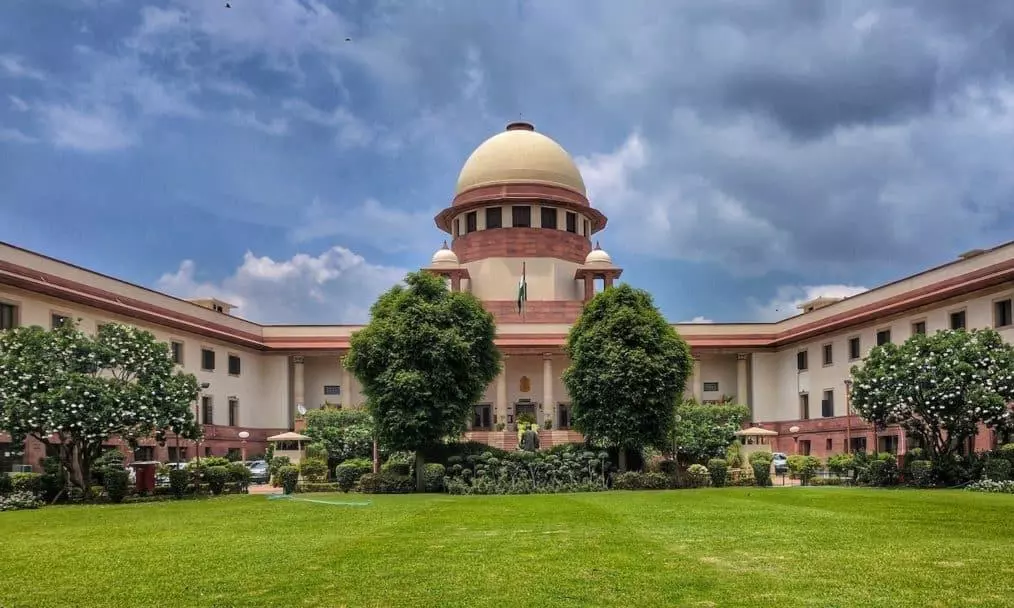
Plea in Supreme Court against "fraudulent" religious conversions
text_fieldsNew Delhi: The Supreme Court issued notice on a petition on alleged fraudulent religious conversion by intimidation, threatening, and deceivingly luring through gifts and monetary benefits on Friday. The plea claimed that such conversions violate Articles 14, 21, and 25, and if they were not restricted, Hindus would soon become a minority in India, IANS reported.
The plea by advocate Ashwini Upadhyay, filed before the bench of Justices M.R. Shah and Krishna Murari, claimed that women and children were mainly targeted for such conversions by missionaries funded by foreign agencies and "conversion mafias". It alleged that the Centre or state governments had not taken any actions against such conversions so far, in the spirit of Article 15(3).
The plea read, "freedom of religion enshrined in Article 25 is not granted exclusively in respect of one faith but includes all religions equally, and an individual may properly enjoy it if he practices his right in a manner commensurate with the freedom of persons practising the other religions. What is liberty for one, in equal measure, is freedom for the other, and therefore, there can be no such thing as a fundamental right to turn another man into one's own religion".
Upadhyay made the Ministry of Home Affairs, the Ministry of Law and Justice, the CBI, the NIA, and state governments respondents in the matter.
The apex court issued notice to the Centre after hearing the plea and posted further hearing on the same in November.
According to the plea, some conversions happen through the process of "church planting". A new local church will be established, and various unethical, predatory strategies will be employed for conversion. Material enticement is another strategy in which humanitarian aid or economic, educational, medical or social assistance is offered on the condition that the person converts.
The plea said, "Another is the denigration of the person's religion to make a new religion appear superior. A third unethical, predatory method is the promotion of 'bigotry,' i.e. knowingly and intentionally promoting religious hatred & violence. Predatory proselytisation tears apart the fabric of the communities where it occurs and has led to the annihilation of cultures."
Upadhyay alleged that there are many organisations that conduct mass conversions, converting socially and economically underprivileged citizens, particularly those belonging to scheduled castes and scheduled tribes, by use of force, allurement and fraudulent means like "black magic, superstition, healing etc.," which according to him is problematic.
The plea suggests the enactment of a law with a minimum imprisonment of 3 years that may extend up to 10 years and a hefty fine to deal with these types of conversions. The government could empower the NHRC to deal with the affairs of religious groups and keep a check by carrying out an in-depth analysis of religious discrimination among them, the plea said.
The plea also sought a direction to the NIA/Central Bureau of Investigation and/or National Human Right Commission (NHRC)/National Commission of Protection of Child Rights to investigate the root cause of the death of a 17-year-old who committed suicide in Tamil Nadu's Thanjavur.






















